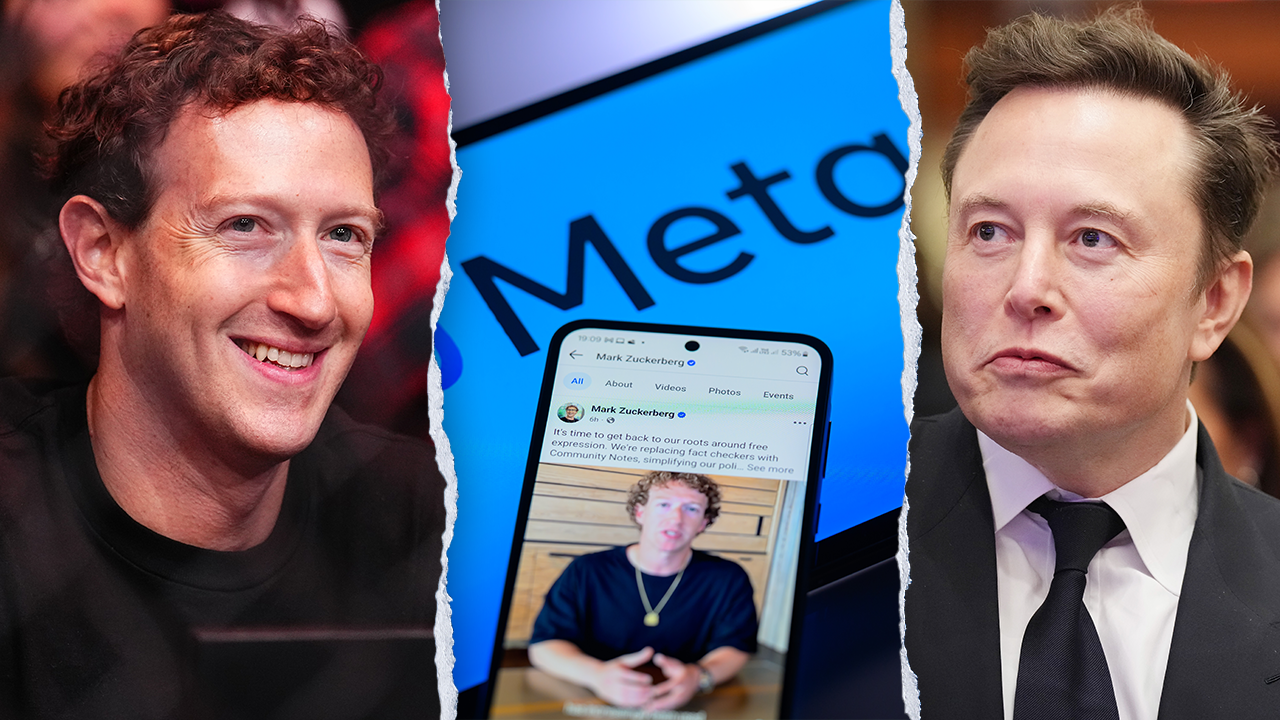Meta’s Shift: A Bold Move Toward Free Speech or a Dangerous Gamble?
In a landmark decision that has sent ripples through the tech community and beyond, Meta Platforms, Inc. has announced its intention to dismantle its fact-checking system. This move aligns with a broader trend in social media governance, reminiscent of Elon Musk’s controversial management style since acquiring Twitter. As experts analyze the implications of this policy shift, questions arise: Is this a triumph for free expression, or does it pose a significant risk to truth and accountability in the digital age?
The Background of Meta’s Decision
Meta’s decision to dismantle its fact-checking apparatus comes amid increasing scrutiny regarding the role of social media in shaping public discourse. For years, platforms like Facebook and Instagram have faced accusations of censoring content under the guise of maintaining factual accuracy. Critics often argued that these measures served to suppress diverse viewpoints rather than foster an open exchange of ideas.
Mark Zuckerberg’s leadership has been marked by a delicate balancing act between promoting free speech and curbing misinformation. However, the pressures of public opinion and the desire to compete with alternative platforms have seemingly prompted Meta to adopt a more laissez-faire approach. The company’s new policy raises the question: Are they prioritizing free speech over the integrity of information shared on their platforms?
Understanding the Implications of Dismantling Fact-Checking
With the removal of fact-checkers, Meta is stepping into a complex landscape of digital communication. Here are some potential implications of this bold move:
- Increased Misinformation: Critics warn that without rigorous fact-checking, false information could proliferate unchecked. Misinformation can have real-world consequences, influencing public opinion and voter behavior.
- Empowerment of Users: Proponents argue that this shift empowers users to discern truth from falsehood. By removing intermediaries, individuals can engage in more open discussions and share their perspectives without fear of censorship.
- Impact on Moderation Policies: Meta’s new approach could lead to a reevaluation of content moderation policies across the industry. If users experience fewer restrictions, it may prompt other platforms to follow suit, creating a domino effect.
Expert Opinions on Free Speech vs. Misinformation
Experts in digital communication and media ethics are divided on Meta’s decision. Some celebrate it as a victory for free expression, while others caution against the potential dangers of unchecked discourse.
Dr. Emily Thompson, a professor of media studies, argues that “free speech is a fundamental right, and the removal of fact-checkers allows for a more democratic exchange of ideas.” She believes that users are capable of assessing the validity of information without external intervention.
Conversely, Dr. Harold Jenkins, a researcher focused on misinformation, warns that “removing fact-checking is a risky gamble. History has shown that misinformation spreads rapidly, and the consequences can be dire, especially in times of crisis.” He emphasizes that while free speech is essential, it should not come at the expense of truth and accountability.
Comparisons to Elon Musk’s Approach
Elon Musk’s acquisition of Twitter has been characterized by a significant reduction in content moderation. Similar to Meta, Musk advocates for a more open platform where users can freely express their thoughts. However, this approach has faced backlash as hate speech and misinformation have surged on Twitter since the changes were implemented.
By dismantling its fact-checking system, Meta appears to be adopting a strategy akin to Musk’s, albeit with its unique set of challenges. Critics argue that both platforms could become breeding grounds for misinformation, thereby eroding public trust in social media as a reliable source of information.
The Role of Technology in Shaping Discourse
As technology continues to evolve, so too does the landscape of public discourse. The removal of fact-checking systems raises critical questions about the responsibility of tech companies in moderating content. Here are some considerations:
- Algorithmic Accountability: Social media algorithms often prioritize engagement over accuracy, leading to the spread of sensationalist content. As Meta shifts its approach, the role of algorithms in amplifying misinformation becomes even more significant.
- User Education: If platforms like Meta are to embrace a more unmoderated space, there’s an urgent need for user education on media literacy. Users must be equipped with tools to critically evaluate the information they encounter.
- Regulatory Challenges: Governments and regulatory bodies are grappling with how to manage the flow of information on social media. Meta’s decision could prompt new legislative actions aimed at ensuring accountability in the digital space.
What Lies Ahead for Meta and Social Media?
As Meta navigates this transformative period, the future of social media remains uncertain. The company’s decision to dismantle its fact-checking system may attract a new user base seeking unfiltered expression, but it also risks alienating those who prioritize factual accuracy.
Moreover, the implications of this shift extend beyond Meta itself. Other platforms may feel pressured to adopt similar policies, potentially leading to a widespread erosion of content moderation practices across the industry. This could foster an environment where misinformation thrives, complicating public discourse and decision-making.
Conclusion: A Balancing Act for the Future
Meta’s shift toward a less regulated platform raises essential questions about the balance between free speech and the need for truth in digital communication. As the debate continues, the tech giant finds itself at a crossroads, challenged to define its role in shaping public discourse.
Ultimately, the success of this bold move will depend on how effectively users can engage with information in an increasingly complex digital landscape. Whether this decision is viewed as a victory for free expression or a dangerous gamble remains to be seen, but one thing is clear: the conversation about the responsibility of social media companies is far from over.
See more Future Tech Daily

